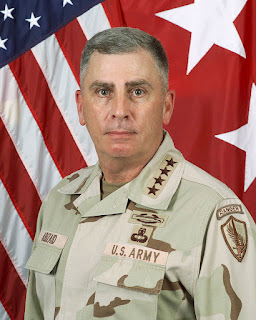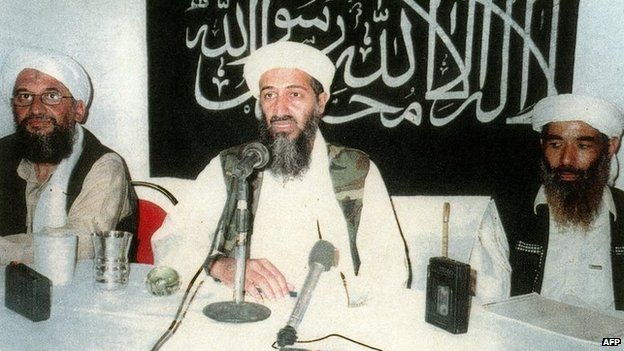Islamic Influence in Spain
(711-1492)
Interestingly, Islamic Spain was a mix of the people of the three great
monotheistic religions: Islam, Christianity, and Judaism. This can be seen in many aspects of the Spanish culture, language and the land itself (i.e. the architecture).
Quiet different from the rest of the Romance languages, Spanish, is brimming with linguistic
elements derived from Arabic. One of the most well-known words to come from Arabic,
ojalá means "hopefully" in English and comes from the Arabic expression: “
in sha allah” which means
should God will it.
Alfombra - carpet [ حنبل]
Álgebra - algebra [الجبر]
Like many other words in Spanish beginning with "Al" the listed words are derived from the Arabic language. In Arabic "Al" is actually the definite article/our version of "The".
 |
The legendary Grand Mosque of Cordoba in Spain Source: History Today
| |
Prior to 711 Spain was first controlled by the Roman Empire which was then expelled by the
Visigoths. However, as a group the Visigoths were not organized and suffered heavily from infighting. This made it hard for them to hold onto the vast territories they occupied.
In 711, Muslim General
Tariq ibn-Ziyad landed at Gibraltar and by the end of the campaign most of the
Iberian Peninsula. Tariq brought most of modern day Spain with the exception of small areas in the north under Islamic rule within the next 7 years. One reason for the success of the Islamic forces was the generous surrender terms they offered the people, which compared to the Visigoths harsh ruling is preferred.
Abd al-Rahman I who was born near Damascus in Syria which he later fled after most of his family was killed, he made his way to the West narrowly escaping death. After the prince arrived in al-
Andalus and word spread, many supporters of the house of
Ummayad came to join him. This was about when he completed the unification of Muslim-ruled Iberia, or
al-Andalus
Located in Southern Spain, Andalusia, became the heartland of the Muslim rule. Southern Spain Andalusia. The name
Andalusia comes from the term Al-Andalus used by the Arabs, derived from
the Vandals who had been settled in the region.
During the 10th century,
Cordoba, the capital of
Umayyad Spain, was unrivaled in both the East and West for its wealth and knowledge. While Europe was cast into the dark ages Muslim Spain and many of its cities flourished. The fame of Córdoba spread even to distant Germany: the Saxon nun
Hroswitha, called it the "Ornament of the World".
 |
| A map of the Caliphate of Cordoba circa 1000CE. Source: History Information |
During this time
Cordoba contained a vast library that may possibly have contained over 400,000 books, many books were translated from Latin and Greek into Arabic in a joint effort between Arabs,
Mozarabs (Christians)
and Jews. The second largest library in Europe at the time had about 10-20 books and was located in a Monastery just to give you an idea about how significant this knowledge was.
The city was described by an author below;
"there were half a million inhabitants, living in 113,000 houses. There
were 700 mosques and 300 public baths spread throughout the city and its
twenty-one suburbs. The streets were paved and lit...There were
bookshops and more than seventy libraries."
Requonquista
After the disintegration of the Caliphate, Islamic control of Spain was gradually eroded by the Christian Reconquista.
The Reconquista was the process by which the Catholic
Kingdoms of northern Spain eventually managed to succeed in defeating
and conquering the Muslim states of the Iberian Peninsula.
The Islamic presence is still to be seen today though, most easily through the remaining architecture. Characteristic elements of this architecture include muqarnas, horseshoe arches, voussoirs, domes, crenelated arches, lancet arches, courtyards, and decorative tile work known as zellij in Arabic.
Below are some examples
 |
| Photo by: Alizay Saeed |
 |
| Alhambra by: Alizay Saeed |
Terms
Monotheistic- the belief in the existence of only one god that created the world, is all-powerful and intervenes in the world.
Visigoths- the nomadic tribes of Germanic peoples referred to collectively as the Goths which sacked Rome.
Iberian Peninsula- a mountainous region that's most associated with the countries of Spain and Portugal.
Andalusia- large autonomous region of hills, rivers and farmland bordering Spain’s southern coast.
Hroswitha- famous in the last half of the 10th century for her Latin poems and dramas.
Mozarabs- Mozarabs is a modern historical term that refers to the Iberian Christians who lived under Moorish rule in Al-Andalus.
Reconquista- the process by which the Catholic
Kingdoms of northern Spain/Europe eventually managed to succeed in defeating the Muslim states of the Iberian Peninsula.
Mozarabs- the name given to the Christians living under Moorish rule.

- When, at which battle and by whom were the Muslim armies stopped?
- Which architectural and historic monuments do you associate with these three cities?
- What are the characteristics of Arabic-Muslim architecture found in mosques and palaces in Spain?



























